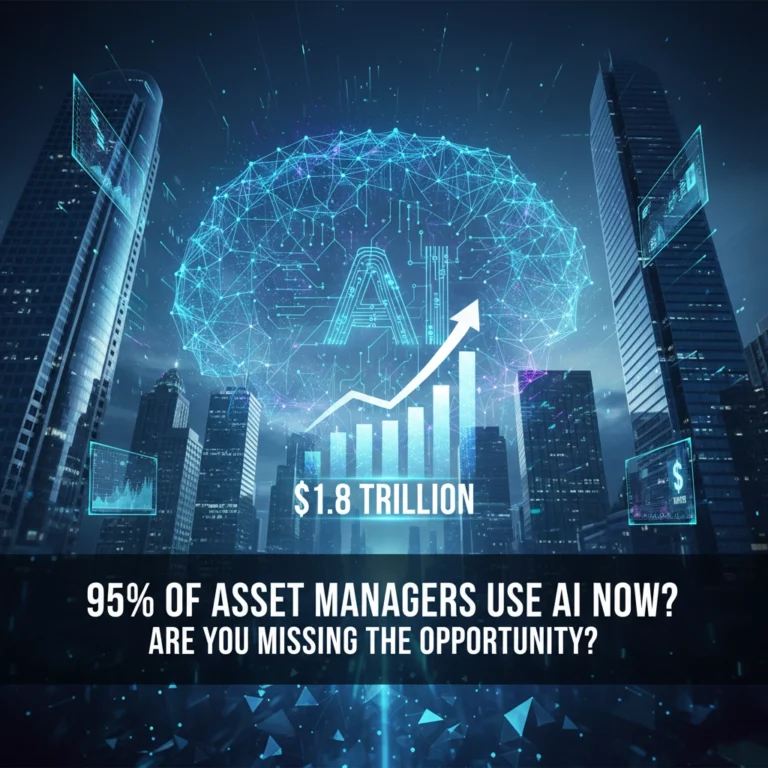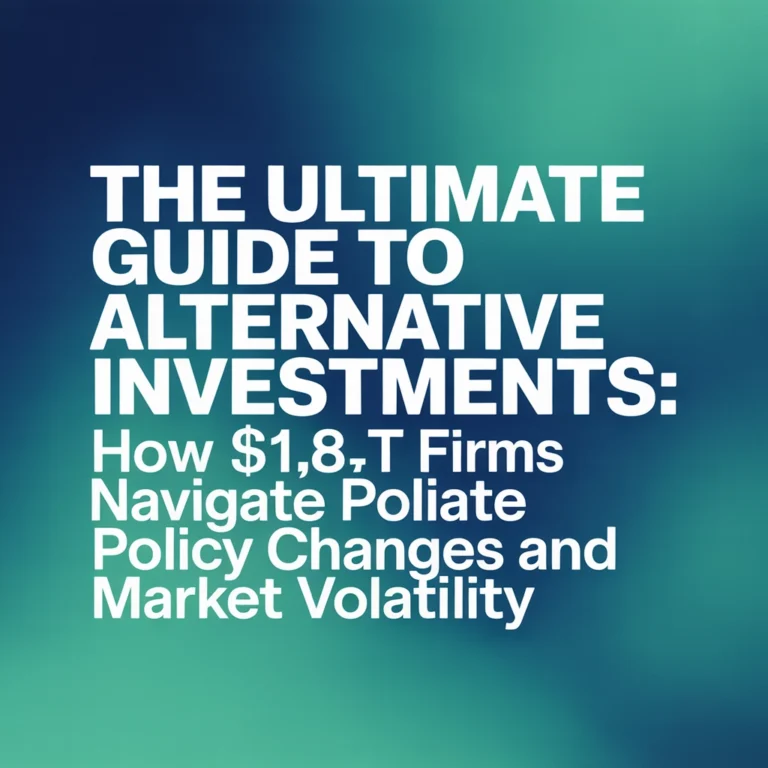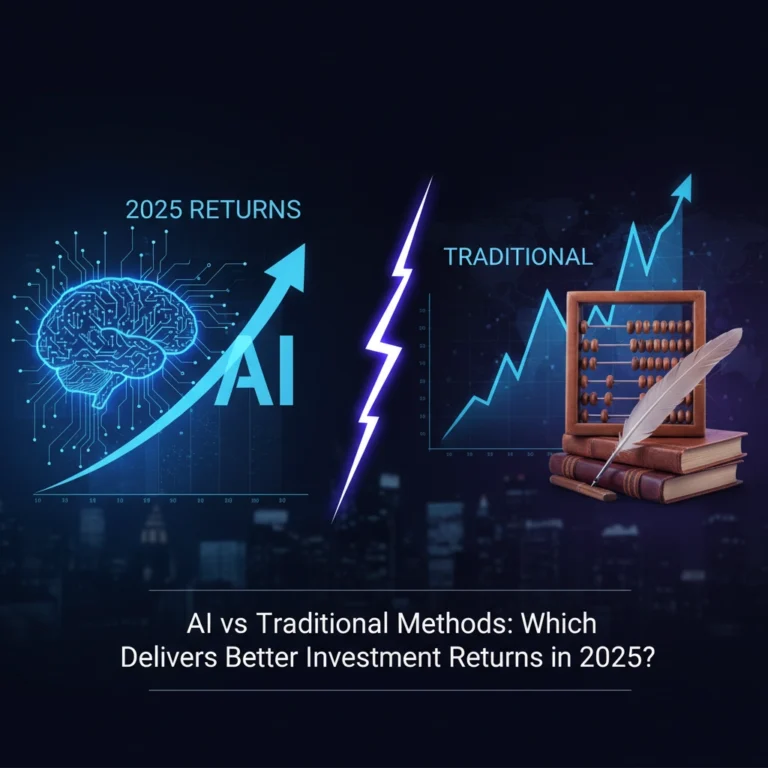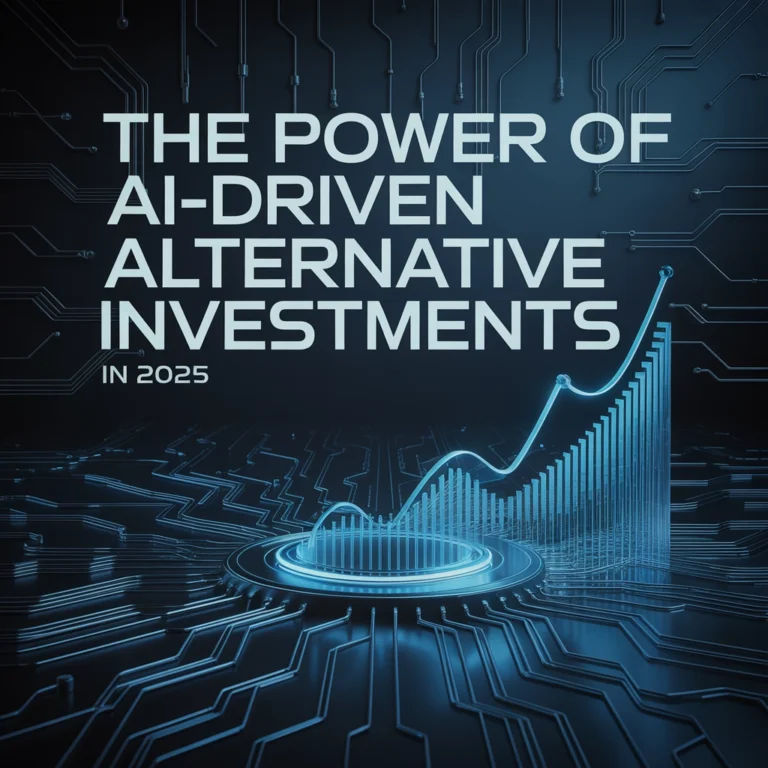AI vs Traditional Asset Management: Which Delivers Superior Returns in 2025?
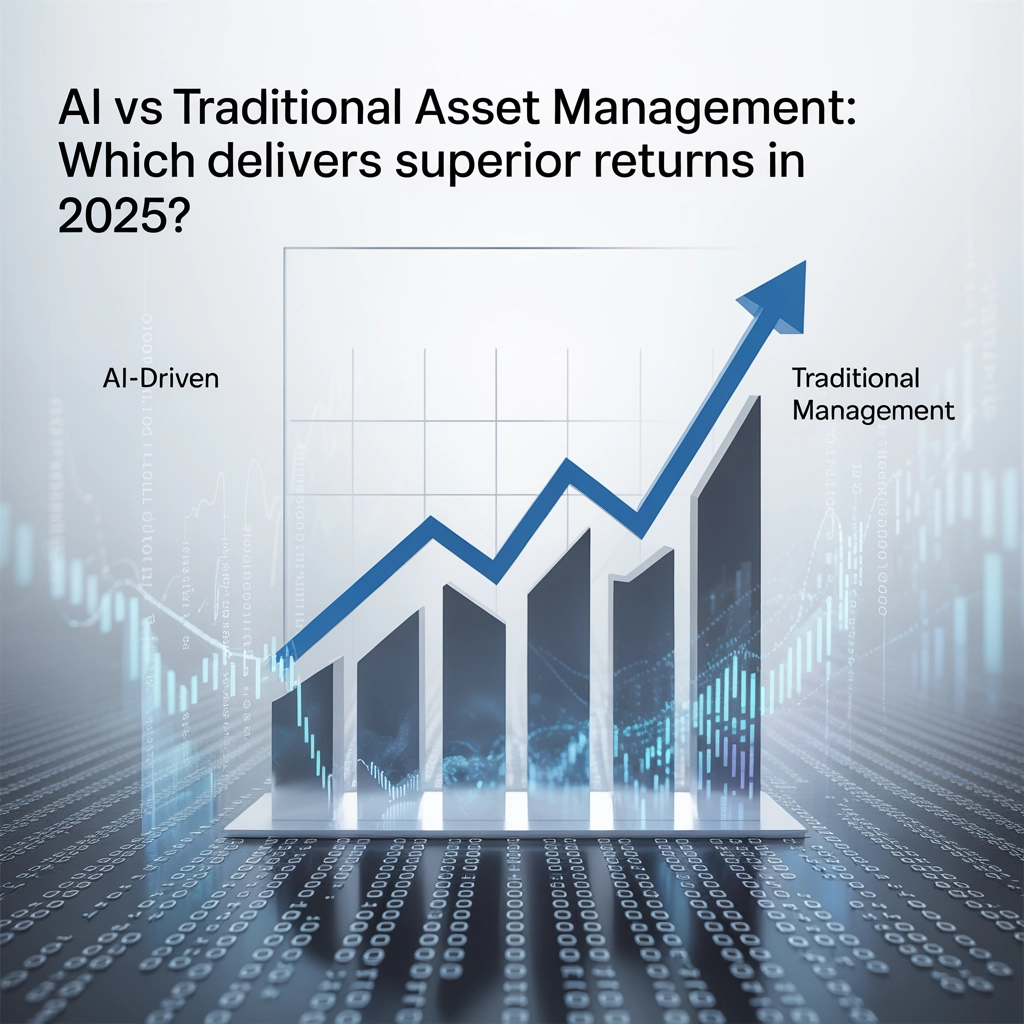
The asset management landscape in 2025 presents a compelling inflection point where artificial intelligence is fundamentally reshaping how portfolios are constructed, managed, and optimized. As institutional investors and high-net-worth individuals navigate increasingly complex markets, the question isn't whether AI will transform asset management: it's whether traditional approaches can remain competitive in an era of algorithmic precision and real-time market analysis.
The stakes have never been higher. With global assets under management exceeding $100 trillion, even marginal improvements in performance and risk management translate to billions in value creation. Today's investors face a critical decision: embrace AI-powered strategies that promise enhanced returns and operational efficiency, or maintain traditional methods that have weathered decades of market cycles.
The AI Revolution in Asset Management
AI-powered asset management represents a paradigm shift from intuition-based investing to data-driven precision. These sophisticated systems leverage machine learning algorithms, natural language processing, and predictive analytics to process vast amounts of market data: from traditional financial metrics to alternative data sources including satellite imagery, social media sentiment, and economic indicators.

The technology's core strength lies in its ability to identify patterns and correlations that human analysts might overlook. Modern AI systems can analyze thousands of variables simultaneously, processing news feeds, earnings reports, economic data, and market movements in real-time to make investment decisions within milliseconds of market changes.
Enhanced Portfolio Optimization
AI algorithms excel at portfolio construction by optimizing asset allocation across multiple dimensions simultaneously. Unlike traditional mean-variance optimization, AI-powered systems can incorporate non-linear relationships, regime changes, and dynamic correlations between assets. This results in portfolios that are more resilient to market volatility and better positioned to capitalize on emerging opportunities.
The technology also enables continuous rebalancing based on changing market conditions. Where traditional portfolios might be rebalanced quarterly or annually, AI systems can adjust positions daily or even intraday, ensuring portfolios remain aligned with investment objectives and risk parameters.
Risk Management Revolution
Perhaps nowhere is AI's advantage more pronounced than in risk management. Traditional risk models often rely on historical volatility and correlation data, which can fail during market stress periods. AI systems, by contrast, can detect early warning signals of market regime changes and adjust portfolio risk accordingly.
Advanced machine learning models can identify tail risks and black swan events before they materialize, providing investors with crucial early warning systems. This proactive approach to risk management has proven particularly valuable during periods of market dislocation, such as the volatility experienced in global markets throughout 2024.
Traditional Asset Management: The Human Advantage
Despite AI's technological prowess, traditional asset management retains significant advantages that continue to attract sophisticated investors. Human portfolio managers bring qualitative insights, relationship-building capabilities, and nuanced market interpretation that algorithms struggle to replicate.

Experience and Intuition
Seasoned portfolio managers possess decades of market experience, having navigated multiple economic cycles, geopolitical events, and market crises. This institutional knowledge proves invaluable during unprecedented market conditions where historical data may provide limited guidance.
Human managers can incorporate qualitative factors that are difficult to quantify: such as management quality, regulatory risks, or geopolitical tensions: into investment decisions. They can also adapt investment strategies based on changing client needs, market conditions, or macroeconomic developments in ways that may be challenging for algorithmic systems.
Relationship-Driven Opportunities
Traditional asset management excels in relationship-driven investment opportunities, particularly in private markets, where access to deals often depends on long-standing relationships with management teams, investment banks, and other market participants. Human managers can leverage their networks to source unique investment opportunities that may not be available through algorithmic screening.
Client Communication and Customization
High-net-worth individuals and institutional clients often value personal relationships with their portfolio managers. Human advisors can provide personalized service, explain investment rationales in accessible terms, and adapt strategies based on changing client circumstances or preferences.
Performance Analysis: The Numbers Don't Lie
The performance data from 2024 and early 2025 reveals compelling trends in favor of AI-enhanced strategies across multiple asset classes and investment styles.
Equity Performance
AI-powered equity strategies have demonstrated superior risk-adjusted returns, with leading quant funds delivering alpha of 2-4% annually versus traditional actively managed funds. The technology's ability to process earnings data, analyst revisions, and market sentiment in real-time has proven particularly effective in capturing short-term mispricings while maintaining disciplined risk management.
Fixed Income Excellence
In fixed income markets, AI systems have excelled at identifying relative value opportunities across yield curves, credit spreads, and currency markets. The technology's ability to process vast amounts of economic data and central bank communications has enabled more precise duration and credit positioning.

Alternative Investments
AI's impact on alternative investments has been transformational. In private equity and venture capital, machine learning models are enhancing due diligence processes, identifying promising startups, and optimizing portfolio company operations. Real estate investment strategies powered by AI are leveraging satellite data, demographic trends, and economic indicators to identify emerging market opportunities.
The Hybrid Model: Best of Both Worlds
The most successful asset management firms in 2025 are adopting hybrid models that combine AI's analytical power with human expertise and oversight. This approach recognizes that while AI excels at data processing and pattern recognition, human judgment remains crucial for strategic decision-making and client relationship management.
Operational Efficiency
AI-enhanced operations have reduced costs significantly while improving accuracy. Automated trade execution, compliance monitoring, and client reporting have freed human resources to focus on higher-value activities like strategy development and client service.
Enhanced Decision Making
Portfolio managers using AI tools can analyze more investment opportunities, test more scenarios, and make more informed decisions than their purely traditional counterparts. The technology serves as a sophisticated research assistant, providing comprehensive analysis while allowing humans to make final investment decisions.
Implementation Considerations
For investors considering AI-powered asset management, several factors warrant careful evaluation. The technology requires significant infrastructure investment, ongoing maintenance, and skilled personnel to operate effectively. Data quality and model governance are critical success factors that require continuous attention.
Risk Management
While AI enhances many aspects of risk management, it also introduces new risks. Model risk, data quality issues, and algorithmic bias require careful monitoring and control systems. Successful implementation requires robust governance frameworks and human oversight.
Regulatory Compliance
The regulatory landscape for AI in asset management continues to evolve, with requirements for model transparency, algorithmic accountability, and systematic risk monitoring becoming increasingly stringent. Firms must ensure their AI systems can meet these evolving requirements.
The Verdict: AI's Decisive Advantage
The evidence overwhelmingly supports AI-powered asset management as the superior approach for delivering consistent, risk-adjusted returns in 2025. The technology's ability to process vast amounts of data, identify patterns, and execute strategies with precision provides clear advantages over traditional methods alone.
However, the optimal approach combines AI's analytical power with human expertise, creating hybrid models that leverage the best of both worlds. For investors seeking to maximize returns while managing risk effectively, embracing AI-enhanced strategies is no longer optional: it's essential for remaining competitive in today's sophisticated markets.
The future belongs to asset managers who can successfully integrate artificial intelligence into their investment processes while maintaining the human insights and relationships that create lasting value for their clients.

